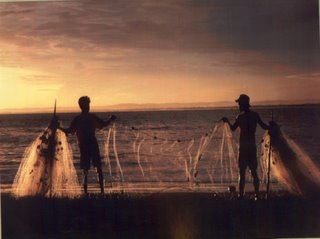
The woods stretch for miles, unbroken and unspoiled. I stop at the old stonewall, a last outpost of industry, covered now with lichen and leaves. Once the boundary for a farmer’s field, this rock wall still marks the edge of the wilderness at the place where someone long forgotten drew the line between civilized and wild, familiar and unexplored.
The house and barn lie safely at my back, and late afternoon sun slants through the forest before me. The landscape turns gold and rust and brown. Only the firs are softened by green. The other trees stand plumb and square, stripped of their autumn finery.
It’s November and I can see far into the woods to where the ledges rise and where lightning split the big pine.
People around here tend to curse this time of year. “Depressing month,” they grumble. “Think of what follows,” they warn.
But I sit on the old stonewall with a secret: I love November. I wait for a day like today when the sunlight cuts clean to the bone and exposes things usually well hidden.
Behind me, the garden rests under its winter dressing of leaves and aged goat manure. It still yields kale, leeks and carrots, but the main harvest is done. My pantry overflows with jars of jam, relish, juice and shell beans. The woodshed hugs its four cords of red oak and maple, cut and split and dried and stacked, and the barn is crammed with hay and cornstalks.
Even the root cellar rivals King Solomon’s mines. Its shelves glitter with the colors of rare jewels. In place of golden chains, I hang braided onions and rather than rubies, I pack apples in straw and beets in damp sand.
From where I sit, summer no longer lingers and there is a pause, a silence, one quiet but full moment suspended between seasons.
My path to the woods touches the pond. No ripples today, just that hard black clarity, prelude to ice. In the distance, Cardigan Mountain looms big and barren. Some mornings, she dresses in startling white and on others she wears her usual grays and browns. The late autumn sun sharpens her features and reveals new majesty.
Here is why I come to the edge of the wilderness in November. It’s too easy to be lost in the mist of a September morning or lulled to sleep by July’s lush green.
The October sun plays on golden aspen leaves, and its light shimmers and dazzles, as if on water. Come January, snow alters the landscape and I’m awed by the blues and whites of deep winter.
No, it’s this rich, warm brown of dried pine needles that carries my vision farther and farther into woods where life has been pared.
Another shaft of light cuts through, and I see ancient stumps, logs and, everywhere, bare trees.
Illusions shatter in November light. Illusions about love and loyalty. Permanence and loss. Delusions of judgment. Control. Questions of right and wrong and who’s to blame. Like so many leaves they drift to the forest floor and turn, eventually into good, dark compost.
Sitting here, watching and waiting, I find this a deeper harvest to reckon. There can be no root cellars for dreams or storage boxes for promises. My garden will not yield up truth, and canning jars do not preserve hope. Instead, I’ll measure the distance between heart and deed and count my wealth by the peace that comes when what I say and what I do are one.
Warm sun falls on the rock wall and I look at the old stones and wonder. Why stop here? Someone years ago set these markers for their world, not mine. Yet I have believed in these walls, these borders, these safe limits and kept well within their lines.
The air is rich with the smell of wood smoke and rotting leaves. Afternoon moves slowly towards dusk, and the woods fade to gray. But for me there’s light enough -- and time.
From the stonewall I walk first to the ledges, then to the big pine struck by lightning, and then to the horizon beyond. The quiet moment suspended between seasons is over, and I’m moving on.
Author’s Note: “November Light” appeared in Convergence Magazine, Winter 1992 issue. I read it again and love it still. I am also very moved to know that these words and images touch others as well.
Today, the pond is gone, but the rest -- garden, barn, Cardigan Mountain, stonewalls, me -- thrive.
















